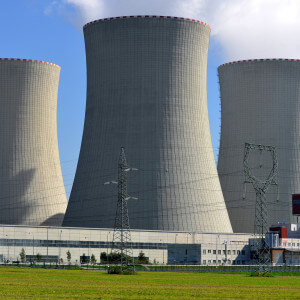If it gets too hot or too cold for long next year or sometime in the next several years, you may find yourself in the dark, without air conditioning or heat, depending on the nature of the crisis. The electricity system is under stress — more so in some areas than others.
The electricity demand is rising rapidly. Onshoring of manufacturing, EVs (both private and commercial), and, most important, data centers serving the demand for AI are all staking their claim to more electricity.
AI gets most of the attention, and deservedly so. Data centers, essential to AI, are appearing everywhere, with a profusion in Virginia, Texas and California.
There is a critical need for more generation, and there is a general agreement that it should be provided, at least in part, by nuclear power. Seldom does an industry executive or a political figure talk about the electricity shortfall than they mention nuclear power and small modular reactors as a solution.
The big tech companies — think Amazon, Google, Facebook, Microsoft — are aware they may have to play a significant role in the future of the electricity supply, but they are selective.
The electricity-hungry tech giants — those building or have contracted to build data centers — are picky about the electricity they want.
The tech giants are keen to signal virtue. They want to be seen as using only carbon-free power, which means abundant and reliable natural gas isn’t an option for them.
They are buying all the wind and solar generation that is available. But for the great new additions that are going to be needed to support the exploding number of data centers and the nearly insatiable needs of AI, nuclear has to be the answer.
Despite the considerable attention given to Microsoft’s planned restart of Three Mile Island Unit 1, the tech giants have yet to really step up.
James Schaefer, senior managing director of Guggenheim Securities Investment Banking, thinks with their vast wealth and great electricity hunger, they should be leading the deployment of mall modular reactors and providing a path to the future. If not, there will have to be government-guaranteed insurance for the cost overruns that construction will likely face for the early generations of these reactors.
The solution is for the big tech companies to sign agreements with the developers to buy their power at generous and, maybe, flexible rates. In other words, they need to take the risk to bring their wealth to bear; otherwise, the risk will have to be taken by the government, which is unlikely to be favored in a conservative administration.
New nuclear plants face two problems: the risk of building the first-of-a-kind, always high, and the fact that the nuclear construction industry in America has been allowed to run down.
This was apparent with the delays and runaway costs experienced by the Southern Company when it added two old-style, big reactors at its Plant Vogtle near Waynesboro, Georgia. The costs and delays were wildly underestimated for the first unit, and the contractor, Westinghouse, went bankrupt during construction. The costs for the second unit also ran over its estimates, but less so than the first. Lessons had been learned, workers trained.
Schaefer believes the electric utility industry, acting in unison, needs to agree with the tech giants on how to provide a serious path to bring these exciting new reactor designs to market.
If the tech companies don’t shoulder a large part of the risk in new nuclear generation, that risk will fall on the industry and its customers and will be reflected in higher electricity rates when inflation has already taken a toll on household income.
Without a new path forward, the state commissions, which regulate electricity pricing, will be fighting for rates to remain low, well aware that inflation has already eaten into family budgets and a rise in the cost of electricity will have political consequences.
The can-do attitude of the incoming Trump administration will be seriously tested in the electricity field. It won’t want people sweating or shivering, and it may have to nudge tech biggies into doing more than peripheral things — and looking green — to provide for a demand they are creating.

